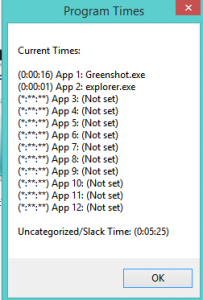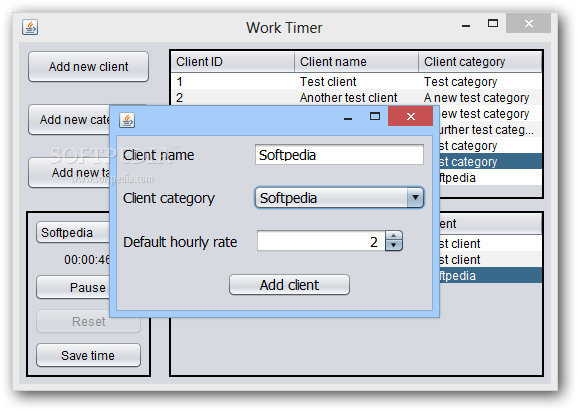

We wish to keep this subreddit a civil environment for all. Catfishing is the luring of somebody into an online friendship through a fake online persona.
#Work timer exe tumblr mods
It may land you in legal trouble, and the mods cannot help you if it falls to that. Do not harass or annoy others in any way. Do not be mean, insulting or disrespectful to any other user on this subreddit. Stay positive - Be polite and courteous to each other.using join() to wait for thread termination.A subreddit devoted to tips and tricks for being more productive. However, for more complicated applications, you should consider some communication between your threads to coordinate when to close - e.g.
#Work timer exe tumblr code
The simplest way to do that for this sample code is just to sleep - for example: import sys The solution is therefore to leave your main thread running while your Timer threads are still operating. This happens despite the fact that your Timers are declared to be non-daemon Threads. It just waits for the main thread to end and then closes everything. However, when you run as an executable, it would appear that the code IronPython uses to wrap the interpreter is not so kind. See the docs for an explanation of daemon threads if you don't know the difference between the 2 types of Threads. Threads still active and so doesn't terminate. The interpreter recognizes that there are some non-daemon The Timer objects that you create are actually a specialization of a Thread. Running the code directly with CPython or IronPython works as expected. The problem is that you are relying on the underlying Python interpreter to gracefully handle the case where the main thread of your executable has terminated, but there should be some others still running. Any insight would be helpful at this point, as I am completely stumped. This seems strange to me, since the problem seems to be with the Timer object itself, and I can't imagine that no one else has tried to deploy an application with a Timer in it. It's almost as if I'm the only one having this issue. Unfortunately, there doesn't seem to be any resources for this specific issue anywhere on the internet. Are there any tricks necessary to make the Timer work within an exe? Is it simply incompatible?Įdit: 6 days without an answer.

Works perfectly in the Interactive Interpreter within Visual Studio, but once I use pyc.py to compile to an exe file, it will not run, and simply closes after ~5 seconds, no exception thrown.Īs mentioned in the previous question, I have a program with a Timer in it that I need compiled, as the source code contains sensitive credentials. ('C:\Users\\Documents\Visual Studio 2015\Projects\Testing Timer Compilation issue\Testing Timer Compilation issue\Lib') ('C:\Users\\Documents\Visual Studio 2015\Projects\Testing Timer Compilation issue\Testing Timer Compilation issue') Here is the test code I'm using - a simple counting program: import sys I've included the library in my \Lib\site-packages directory and added the directory to the path in the program. I figured out that my program is not working once compiled due to an issue with the Timer object in the threading library.


 0 kommentar(er)
0 kommentar(er)
